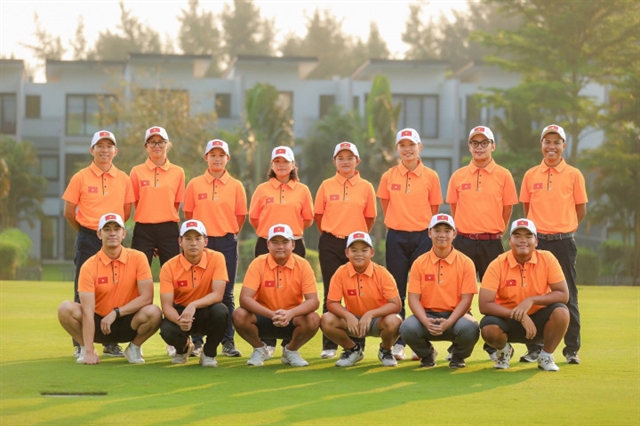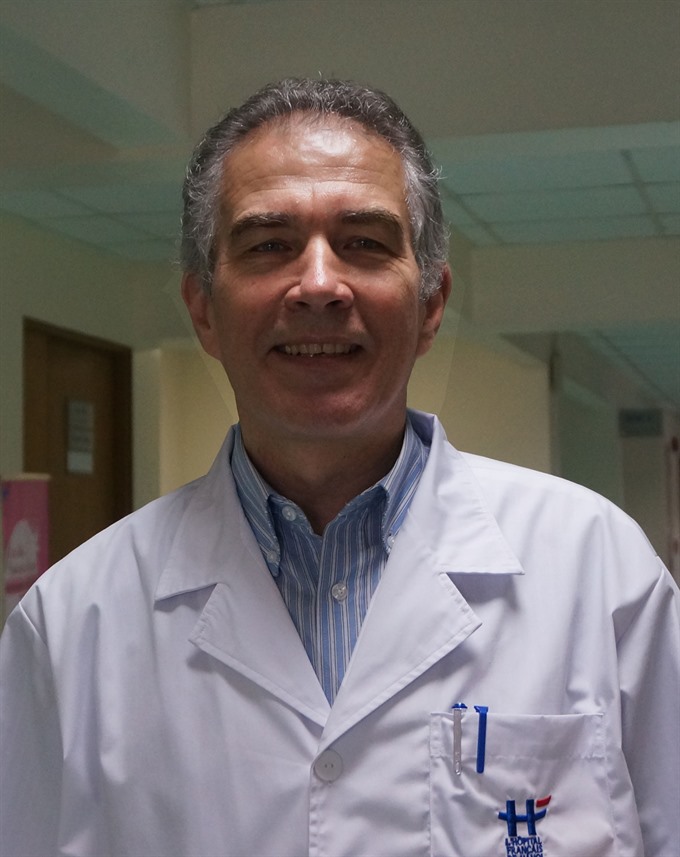 Life & Style
Life & Style

 |
| Dr. Brosset – Photo by Hanoi French Hospital |
By Dr Brosset*
Cerebrovascular accidents (CVA) are a serious public health problem in Việt Nam. CVAs are the first cause of death in the country (according to the World Health Organization, 2012) and are responsible for the majority of acquired disabilities and dementia in the adult population.
There are two main types of CVA, or stroke: an ischemic stroke, which is caused by a blockage in one of the arteries supplying blood to the brain, and a hemorrhagic stroke caused by the rupture of a blood vessel in the brain. Both types of stroke deprive part of the brain of blood and oxygen, causing brain cells to die.
It is important to know how to recognize the early signs of CVA to enable hospital treatment within the very first hours of symptom onset. Such treatment either aims to unblock an artery in case of ischemic stroke or reduce the blood pressure in case of a vessel rupture and bleed. Such early recognition and treatment can not only save lives but significantly reduce the risk of long-term complications and disability.
How to recognise CVA?
Symptoms usually appear suddenly, even if they are not very severe, and may worsen over time. The most common ones are:
These symptoms can sometimes resolve spontaneously after a couple of seconds or minutes. This is called a “transitory ischemic attack” (TIA). Nonetheless, immediate medical attention should be sought even when symptoms resolve as they are often the precursor to a more severe problem.
A CVA can be caused by various underlying conditions, ranging from cardiac arrhythmias to atherosclerotic plaques in the cerebral arteries. Knowing one’s risk factors can help treat them at an early stage and significantly reduce the risk of a stroke.
High arterial blood pressure, or hypertension, is the most common and treatable single risk factor for the development of a CVA. There is a linear relationship between elevated blood pressure and occurrence of a CVA. When treated with medicine, this risk can be reduced by 40 per cent.
Current guidelines recommend maintaining blood pressure levels below 140/90 mmHg. In Việt Nam, the percentage of patients with high blood pressure is an estimated 30 per cent by the WHO, comparable to the incidence in Europe. It is however interesting that the proportion of brain hemorrhages (bleeding), which is the one form of CVA more directly linked to elevated blood pressure, account for only 10 per cent of the cases in the Western world but for almost 50 per cent in Việt Nam. This discrepancy can be partially explained by the fact that fewer Vietnamese patients are aware that they have high blood pressure and fewer are adequately treated with medication.
High blood lipids, such as high cholesterol, are another major risk factor for the development of a CVA and can equally be well controlled with diet and/or medicine. The question of whether to initiate preventative treatment to lower blood lipids throughout the population is still unresolved, but it is important to screen regularly to detect such conditions before they cause problems.
Finally, diabetes and tobacco smoking, which pertain to one out of two men in Việt Nam has to be taken into consideration and managed appropriately to reduce the risk of CVAs and heart attacks.— Hanoi French Hospital
*Dr Brosset works at the Neurology Department at HFH and has brought with him his long term expertise disease prevention and treatment. Dr Brosset is a specialist in stroke management.
If you have any questions or want to book an appointment with our doctors, please contact us at our phone number 84 – 24.3577.1100, access www.hfh.com.vn, or email us at contact@hfh.com.vn, Address: 1 Phương Mai, Đống Đa, Hà Nội




